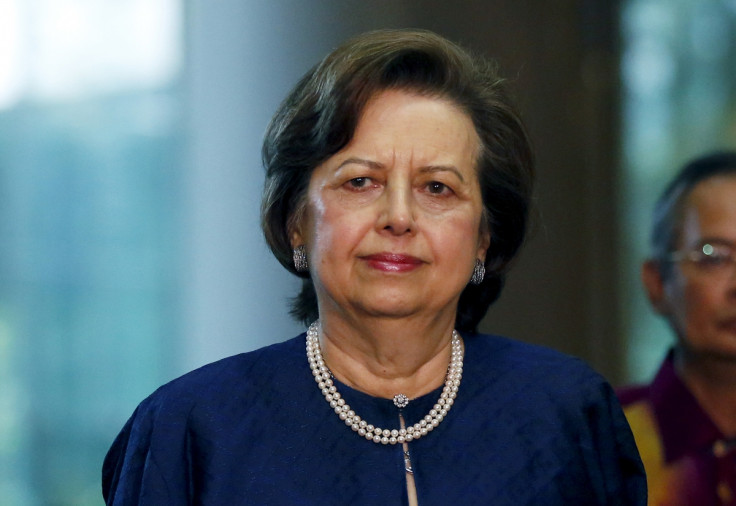Malaysia's central bank chief Zeti Akhtar Aziz to step down in April as 1MDB scandal gathers pace

Bank Negara governor Zeti Akhtar Aziz has confirmed that she will step down in April when her term in office expires. The 68-year-old has been the head of the central bank for the past 16 years.
Under normal circumstances, the departure of a central bank would not have been a cause of concern. However, she is leaving while the country is mired in an international scandal involving state fund 1 Malaysia Development Berhad and its Prime Minister Najib Razak who heads the fund's board of advisors.
And of course, one must not forget the fact that the central has been among the most aggressive domestic agencies in probing 1MDB. In fact, Bank Negara made a recommendation that criminal action be taken against 1MDB. However, the newly-appointed attorney-general Mohamed Apandi Ali rejected this. Apandi took office recently, after the previous AG who was heading a task force probing the state fund, stood down for health reasons.
Corruption investigations involving the state fund have been launched in several countries, including the US, Singapore, Switzerland, Abu Dhabi and even the UK. Charges that are being looked at includes money laundering and bribery.
But Zeti is not going away quietly. In announcing her decision to leave, she insisted that the central bank will continue to be independent even after her departure. She did not stop there. The banker stated categorically that no politician should be appointed to succeed her.
"Every country needs an organisation like the central bank that is not grown to any political developments or political agendas and will remain focused on ensuring economic stability ... so that financial policies would be of the best interest of the country," Zeti told reporters after attending a banking event in Kuala Lumpur on 17 February.
In perhaps what could be her parting shot to the powers-to-be, she said: "Even for financial institutions, we do not have politicians on the board, so least of all should be the central bank." So far her replacement has not been named.
The names of possible contenders being speculated in local media include deputy central bank governor Muhammad Ibrahim, and Malaysia's ambassador to the US Awang Adek Hussin. who previously worked at the central bank and Abdul Wahid Omar, the head of Najib's economic planning unit. Another contender is Dr Mohd Irwan Serigar Abdullah, the Secretary General of the Treasury at the Ministry of Finance. Najib, while speaking in the US said that the government will nominate a successor soon.
Whoever succeeds Zeti is likely to be under huge pressure from Najib's administration to ensure that the central bank does not aggressively look into 1MDB's activities, says James Chin, a political analyst at the University of Tasmania. He told the Wall Street Journal: "They're not going to rock the boat."
At the same time, Najib will have to put a central banker in place who is respected in the financial circles as well as to help restore investor confidence in the country, which has been battered by the on-going 1MDB scandal as well as falling commodity prices. Following Zeti's departure, the central bank's activities will be closely monitored to see if the highly regarded Bank Negara Malaysia will be able to retain its credibility as an independent and cautious central bank.
The transition in the central bank under normal circumstances would not be an issue in an economy that was steady or improving, Ashish Agrawal, fixed income strategist at Credit Suisse noted. "However, if conditions deteriorate again - risk sentiment is weak, commodities weak and the ringgit is under a lot of pressure, the transition and 'bias' will likely be scrutinised.
"People are hoping that the successor will be credible as Zeti has been," Brian Tan, an economist with Nomura said. He added: "But we don't know who is on the list [to succeed her] and some people worry the replacement will be politically motivated."
While the central bank is independent in Malaysia, the governor will have to be formally appointed by the country's titular king, on the advice or recommendation of the government.
Malaysian 1MDB scandal: Check out our Flipboard magazine
© Copyright IBTimes 2025. All rights reserved.






















